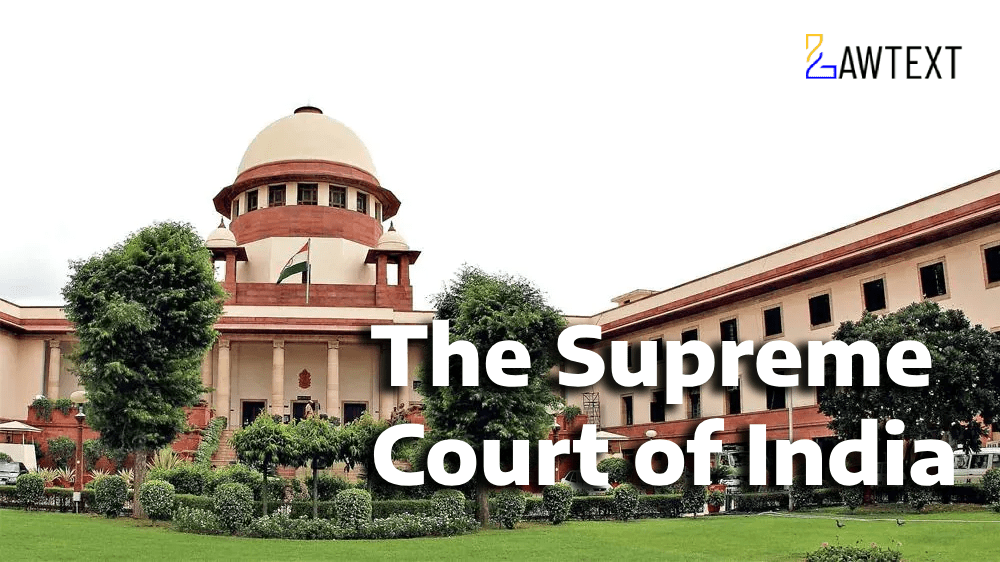CASE NOTE & SUMMARY
The legality and process of demolishing structures, especially those connected to accused individuals. It establishes that such demolitions, often perceived as punitive actions, cannot be executed without strict adherence to due process and the rule of law. The court emphasizes the doctrine of public accountability, separation of powers, and public trust, making it clear that punitive demolitions targeting accused individuals without a fair legal process violate constitutional rights. The judgment mandates that demolitions must only occur following a thorough, transparent legal process, stressing judicial oversight in all punitive state actions affecting private property.
I. Background
- This case consists of multiple writ petitions challenging the demolition of properties linked to individuals accused of crimes, without due process.
- The petitioners sought protection against arbitrary demolitions, which are often punitive in nature.
II. Rule of Law
- The Court reaffirms that everyone is subject to the law and that no punishment can be inflicted without legal process.
- It references Dicey’s principles on rule of law and highlights the necessity of a fair legal process, especially concerning personal property.
III. Separation of Powers
- The Court asserts that demolitions as punitive measures without judicial oversight infringe upon the judiciary’s role.
- Reinforces that the executive branch cannot assume judiciary powers, as it disturbs the balance between the branches of government.
IV. Doctrine of Public Trust and Accountability
- Emphasizes that public officers act as trustees of the people and must adhere to transparency and accountability in their actions.
- Arbitrary demolitions are seen as a breach of public trust.
V. Rights of the Accused
- The judgment reinforces the presumption of innocence, ensuring accused individuals retain their rights until convicted.
- Arbitrary actions by state actors targeting accused individuals are deemed unconstitutional.
VI. Right to Shelter
- Recognizes housing as fundamental to human dignity and security.
- Holds that demolitions should be the last resort and must follow due process to respect citizens' right to shelter.
VII. Permissibility of Collective Punishment
- The Court explicitly disallows punitive demolitions as a form of collective punishment, protecting innocent individuals associated with the accused from suffering consequences.
VIII. Guidelines for Demolition
- The judgment concludes with specific procedural guidelines for demolitions, focusing on transparency, notice requirements, and opportunities for legal recourse.
Acts and Sections Discussed
- Indian Penal Code (Relevant sections for criminal accountability)
- Article 32, Constitution of India: Petitioners’ right to constitutional remedies.
- Public Trust Doctrine: Invoked to assert state accountability and responsibility.
- Rule of Law and Separation of Powers: Fundamental principles under the Constitution as noted in prior landmark cases.
Ratio Decidendi:
The court’s central reasoning is that the arbitrary demolition of properties, especially without due process, is a violation of constitutional protections afforded to individuals. The judiciary’s role as an impartial adjudicator cannot be undermined by executive actions, which, without judicial oversight, infringe upon the rule of law, public trust, and the separation of powers.
Subjects:
Property Rights, Right to Shelter, Executive Overreach, Due Process, Constitutional Rights.
Rule of Law, Separation of Powers, Right to Shelter, Due Process, Arbitrary Demolition, Public Accountability.
Citation: 2024 LawText (SC) (11) 131
Case Number: WRIT PETITION (CIVIL) NO.295 OF 2022 WITH WRIT PETITION (CRIMINAL) NO. 162 OF 2022 WRIT PETITION (CIVIL) NO. 328 OF 2022
Date of Decision: 2024-11-13
Case Title: In Re: Directions in the matter of demolition of structures
Before Judge: [B.R. GAVAI J. , K.V. VISWANATHAN J.]
Appellant: In Re: Directions in the matter of demolition of structures

